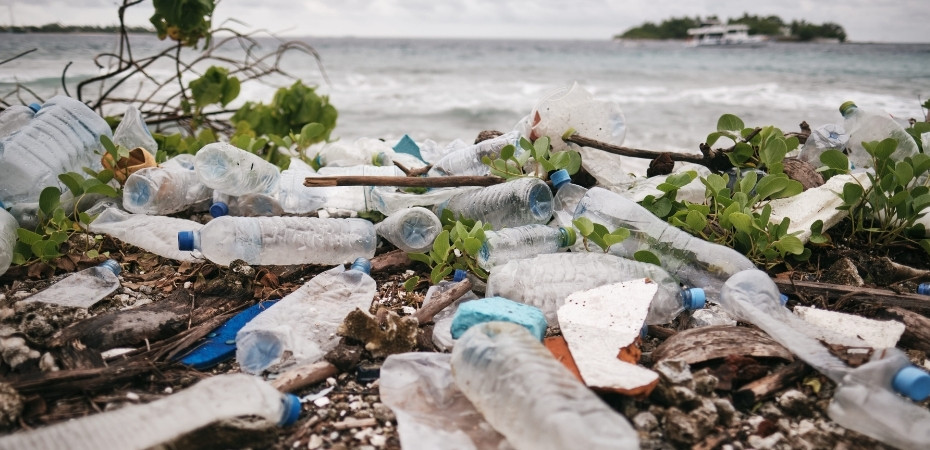Greenwashing in Singapore

Greenwashing, the act of making false or misleading claims about the environmental benefits of products or services, is not a new phenomenon in Singapore.
One recent, high-profile example involves the Alliance to End Plastic Waste (AEPW), a Singapore-based not-for-profit organization. In 2019, AEPW claimed to be spending $1.5B USD on cleaning up plastic waste in developing countries. However, a Reuters investigation in 2021 discovered that one of its flagship initiatives, Renew Oceans, failed to dredge the Ganges river in India of substantial plastic waste, despite publishing targets on its website to collect 45 tonnes of plastic trash from the river in 2019 and 450 tonnes in 2020. In addition, AEPW and the large oil and chemical companies backing it were allegedly planning to ramp-up plastic production. According to a report from Belgian-Dutch NGO Recycling Netwerk (CRCT) in 2019, many of the 28 members forming the alliance, including major companies had scheduled future billion-dollar investments in the expansion of plastic production.
Greenpeace has called AEPW an industry scam designed to allow for endless plastic production. AEPW responded to the criticism by explaining that Renew Oceans’ termination occurred due to complications caused by COVID-19. It also published an article, “Why proper waste management is more important than going plastic-free,” to argue against means of reducing plastic production. These claims themselves received further criticism for being unfounded, for example an ocean clean-up organisation commented that “(the article) made AEPW seem like a plastic industry lobby group.”
Safeguarding regulations and measures
Increasingly, countries around the world, including Singapore, are introducing safeguards to combat greenwashing. General laws in Singapore which have relevance to the issue include the following:
- The Consumer Protection (Fair Trading) Act (CPFTA), which protects consumers against unfair, misleading, or deceiving business practices, the making of bogus claims, and gaining advantages knowing that consumers lack adequate knowledge about the consequence of the transaction. Aggrieved consumers may lodge a complaint with the Competition and Consumer Commission of Singapore.
- The Misrepresentation Act, which allows a consumer to recoup damages from the merchant (according to contractual agreements) following a misrepresentation-led business transaction.
- The Singapore Code of Advertising Practice requires all advertisements to be legal, decent, honest, and truthful.
However, laws and regulations in Singapore do not explicitly cover greenwashing. Thus, the burden is often on consumers to determine what constitutes greenwashing. That said, it is often difficult to prove that certain acts constitute unfair business practices, or to prove that damage has occurred from misrepresentation due to greenwashing. There may be a need to update and clarify the existing laws and regulations in Singapore to protect consumers and help businesses to avoid greenwashing.
In the finance realm, the greenwashing of environmental, social, and governance (ESG) investment products to attract investments is becoming an issue of concern. Various organizations are working on regulations and standards to curb it, as detailed below:
- The Monetary Authority of Singapore (MAS) requests banks in Singapore to undergo stress tests from 2022, which means that banks will have to get a better handle on the climate risks tied to their borrowers, customers, and supply chains.
- The MAS has also devised a blueprint for sustainable investing and financing, which includes (1) a Green Finance Industry Taskforce (GFIT) taxonomy for Singapore-based financial institutions; (2) Project Greenprint, which aims to incorporate data and technology to marshal financing for ESG projects; and (3) mandatory climate-related financial disclosures for companies listed in Singapore.
- In line with major global banks, DBS, OCBC, and UOB, the three major Singapore banks, pledged to stop financing industries linked to climate change, such as new coal-fired power projects.
- On the technology side, Singapore has launched a new public artificial intelligence (AI) programme – the National AI Programme in Finance in late 2021, which includes an industry-wide AI platform, NovA!. NovA! aims to help financial institutions better assess companies’ environmental impact and identify emerging environmental risks.
- The IRFS Foundation Trustees announced three new initiatives to combat greenwashing: (1) create an International Sustainability Standards Board (ISSB) to establish excellent sustainability disclosure standards to investors; (2) unify sustainability disclosure standards of the Climate Disclosure Standards Board and the Value Reporting Foundation; (3) publish mock-up climate and general disclosure guidelines.
- The CFA Institute has implemented a global ESG disclosure standard for investment products to safeguard investors against greenwashing.
- The Board of the International Organization of Securities Commissions (IOSCO) launched a set of recommendations to regulate ESG-related products, as well as to provide financial and investor education in the realm of sustainability.
Takeaways
Although laws to combat greenwashing in Singapore may not be perfect at this stage, the country is working towards various measures to curb the practice and help consumers to rebuild trust. Sellers should aim to follow widely-accepted best practices to ensure their company is not greenwashing, such as making clear, easy to understand claims, backing up those claim with data, using honest statements about practices and plans, and avoiding misleading images on ads and packages. It is also advisable to follow Singapore-specific regulations, such as the disclosure requirements by MAS.
Please feel free to contact Vivian with any questions regarding greenwashing.
Author(s)
Vivian Wei Cheng
Vivian is a qualified Singapore patent attorney specialized in areas such as life science and biotechnology, consumer care, food and retail, chemical and healthcare.

